The demand for skilled cybersecurity professionals is skyrocketing, with the global cybersecurity market expected to grow significantly in the coming years. As technology advances, companies are realizing the importance of employing reliable individuals to prevent and manage cyberattacks.
This has led to a surge in security jobs available, but finding the right talent can be challenging. One effective way to identify top candidates is by looking for certifications from qualified bodies.
Obtaining the right certification can position you as a sought-after security professional, enhancing your career prospects. This guide will explore valuable cybersecurity certifications, including specialized Splunk certifications.
Key Takeaways
- Discover the most valuable cybersecurity certifications available today.
- Learn how Splunk certifications can enhance your career prospects.
- Understand the certification requirements, costs, and exam formats.
- Explore certifications for all experience levels, from entry-level to advanced.
- Find out how to make informed decisions about which certifications align with your career goals.
The Growing Importance of Cybersecurity Certifications
With the rise of sophisticated cyber threats, organizations are seeking professionals with validated cybersecurity skills. The cybersecurity landscape is evolving rapidly, with increasingly sophisticated threats creating an urgent need for skilled professionals who can protect organizational data and systems.
Why Cybersecurity Skills Are in High Demand
The demand for cybersecurity skills is driven by several factors. Key among these is the widening cybersecurity skills gap, with organizations struggling to find qualified candidates who possess both theoretical knowledge and practical security experience.
- The rise in remote work, cloud adoption, and IoT devices has dramatically expanded the attack surface that security teams must protect.
- This expansion has driven demand for specialized security skills, making it challenging for organizations to find the right talent.
- As a result, the job market for cybersecurity professionals is expected to grow much faster than average, with a projected 356,700 job openings annually from 2023 to 2033.
How Certifications Enhance Your Career Prospects
Cybersecurity certifications serve as tangible proof of your expertise, helping you stand out in a competitive job market. These certifications not only validate your existing knowledge but also expose you to standardized best practices and methodologies used by security professionals worldwide.
By obtaining a certification, you can accelerate your career advancement, potentially leading to higher-paying positions and greater responsibilities within security teams. This, in turn, can lead to greater job satisfaction and a more fulfilling career in cybersecurity.
Benefits of Earning Cybersecurity Certifications

Cybersecurity certifications are a valuable asset for professionals looking to advance their careers. These certifications not only demonstrate your expertise but also provide a competitive edge in the job market. By obtaining a cybersecurity certification, you can significantly enhance your career prospects and open up new opportunities.Higher Earning Potential and Job Credibility
Earning a cybersecurity certification can lead to higher earning potential. Certified professionals often command salaries 15-20% higher than their non-certified counterparts. Moreover, certifications add credibility to your resume, serving as third-party validation of your security knowledge and skills at a specific competency level.
- Certified professionals are more likely to be considered for senior roles and promotions.
- Certifications demonstrate your commitment to staying up-to-date with the latest security trends and technologies.
Continuous Learning and Professional Development
Many certification programs require continuing education credits, ensuring that you stay current with evolving security threats, technologies, and best practices. This continuous learning process helps you expand your professional network through preparation courses, study groups, and certification-specific communities.
Certain government positions and contracts specifically require security certifications like CompTIA Security+ to meet compliance requirements such as DoD 8570. Certifications can also help organizations demonstrate due diligence in their security practices during audits and assessments, making certified professionals valuable assets.
Entry-Level Cybersecurity Certifications
If you’re just starting out in cybersecurity, obtaining the right certification can be a crucial step in launching your career. Entry-level certifications are designed to provide foundational knowledge and skills, making it easier for you to secure a job in this in-demand field.
CompTIA Security+
The CompTIA Security+ certification is a widely recognized credential that covers essential security concepts, tools, and procedures. It’s an ideal starting point for your cybersecurity career, providing you with the right knowledge and practical skills to get an entry-level job.
The Security+ exam is 90 minutes long and consists of approximately 90 multiple-choice questions. To pass, you’ll need to score at least 750 on a scale of 100-900. This certification is particularly valuable for government and defense positions due to its DoD 8570 compliance, opening doors to roles like IT auditors, junior penetration testers, and security administrators.
For more information on how CompTIA certifications can enhance your career prospects, visit CompTIA’s Cybersecurity Career Pathway.
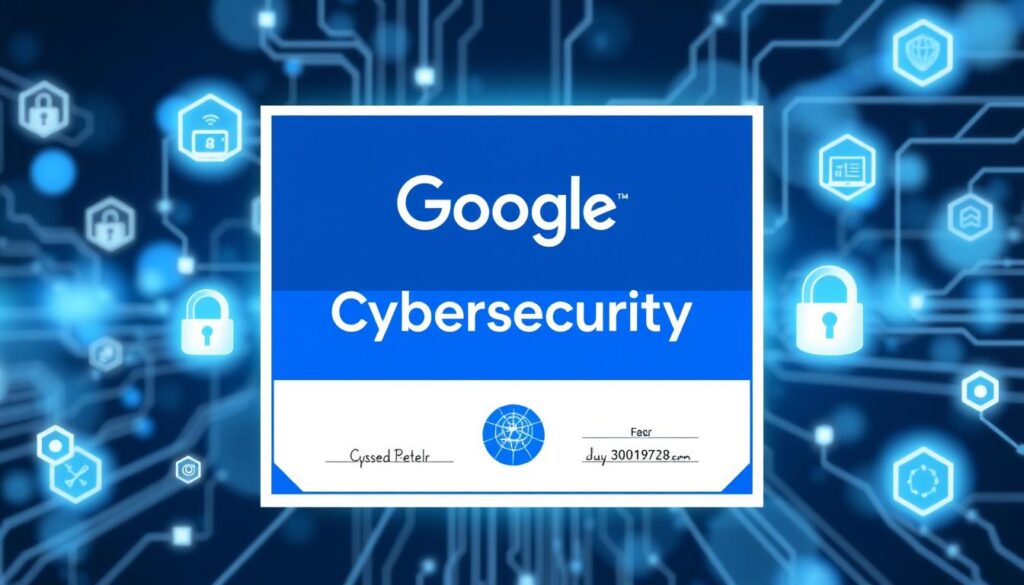
Google Cybersecurity Certificate
The Google Cybersecurity Certificate is a newer entry-level option developed in partnership with Splunk. This foundational program is designed for anyone interested in cybersecurity and requires no prior experience or knowledge to get started.
The certificate program is offered through Coursera, providing a flexible learning format that can be completed in approximately 6 months at 7 hours per week. The affordable monthly fee structure of $50 makes it an attractive option for those new to the field.
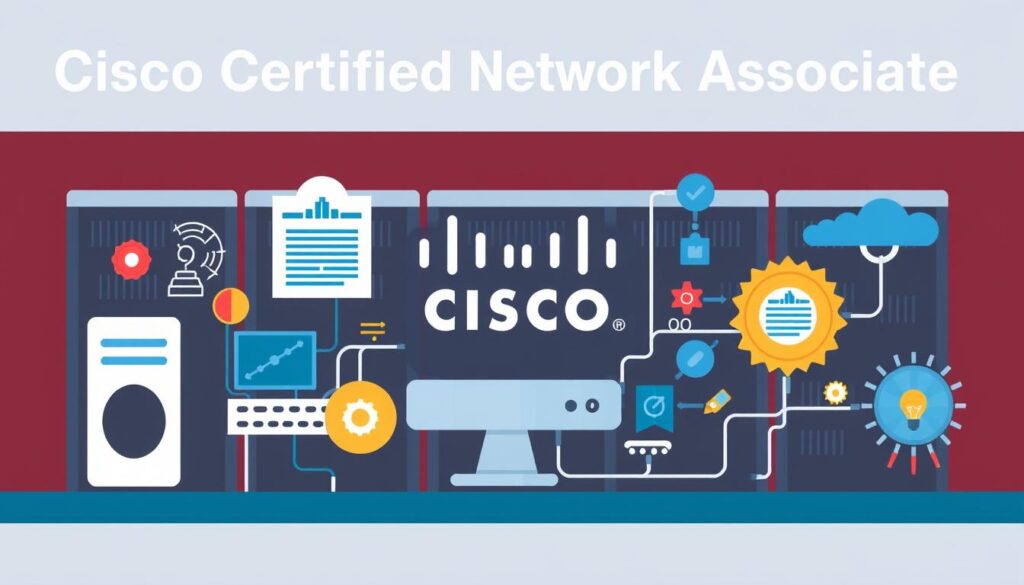
Cisco Certified Network Associate (CCNA)
The Cisco Certified Network Associate (CCNA) certification gives cyber enthusiasts a thorough introduction to the world of IT security. It validates your knowledge of networking, security fundamentals, automation, and more.
The CCNA certification exam is a critical step in building a strong foundation in IT and security. By obtaining this certification, you’ll demonstrate your understanding of networking concepts and your ability to configure, manage, and troubleshoot network systems.
Intermediate Cybersecurity Certifications
Building on foundational knowledge, intermediate certifications offer a deeper dive into cybersecurity specialties. These certifications are designed for professionals who have some experience in IT or security roles and are looking to advance their careers by specializing in areas like ethical hacking, penetration testing, and cloud security.
Certified Ethical Hacker (CEH)
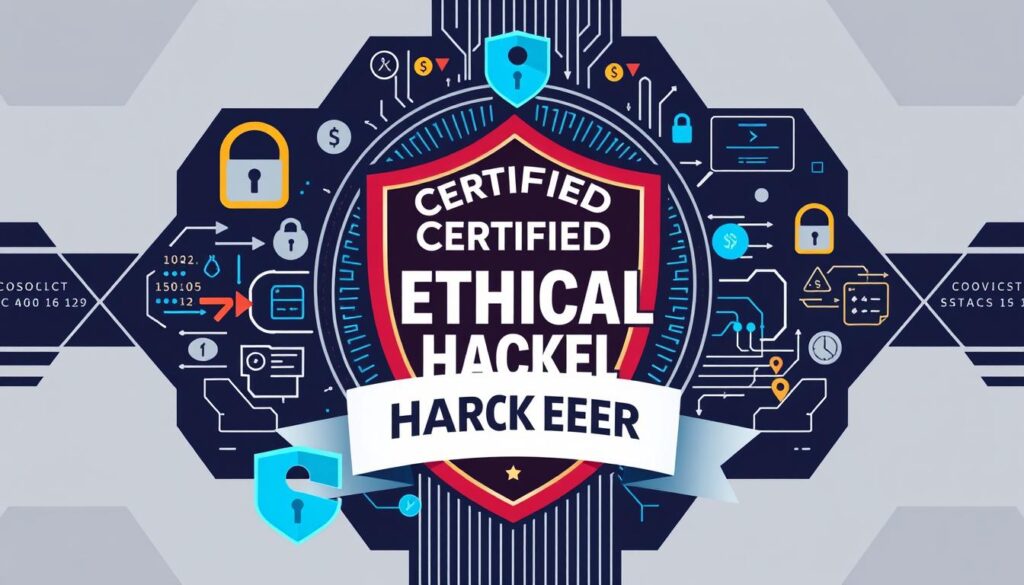
The Certified Ethical Hacker (CEH) certification, provided by the EC-Council, is ideal for aspiring cyber professionals looking to understand the offensive side of cybersecurity. This certification teaches you to think like an attacker, enhancing your ability to defend systems and networks from malicious actors. The CEH exam costs $1,119 and tests your ability to apply ethical hacking techniques in simulated environments.
GIAC Penetration Tester (GPEN)
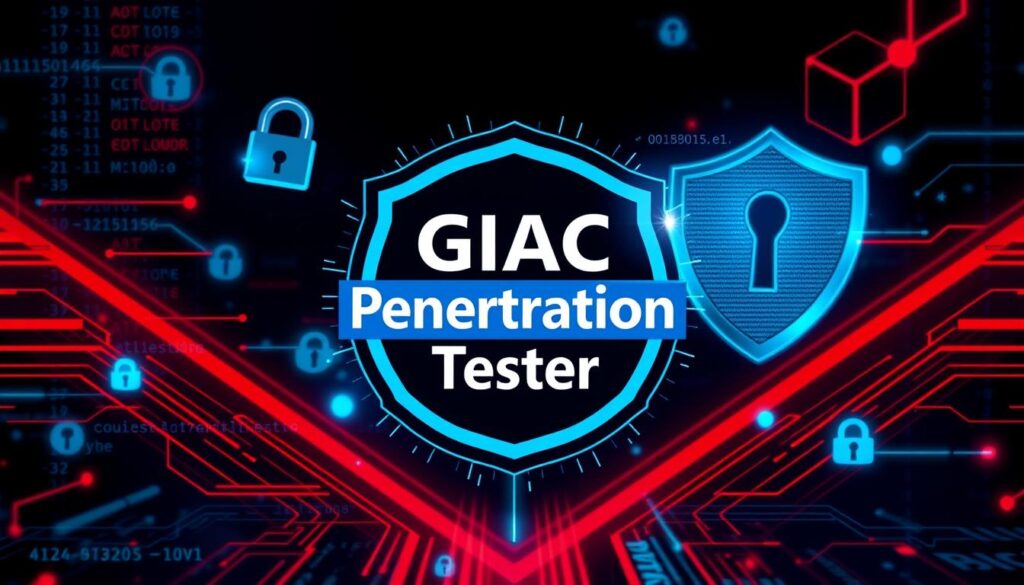
The GIAC Penetration Tester (GPEN) certification validates your professional penetration testing ability. The certification exam and two required practice tests cost $749. This certification is crucial for those who want to demonstrate their ability to conduct penetration tests and vulnerability assessments using advanced methodologies and tools.
CompTIA Cybersecurity Analyst (CySA+)
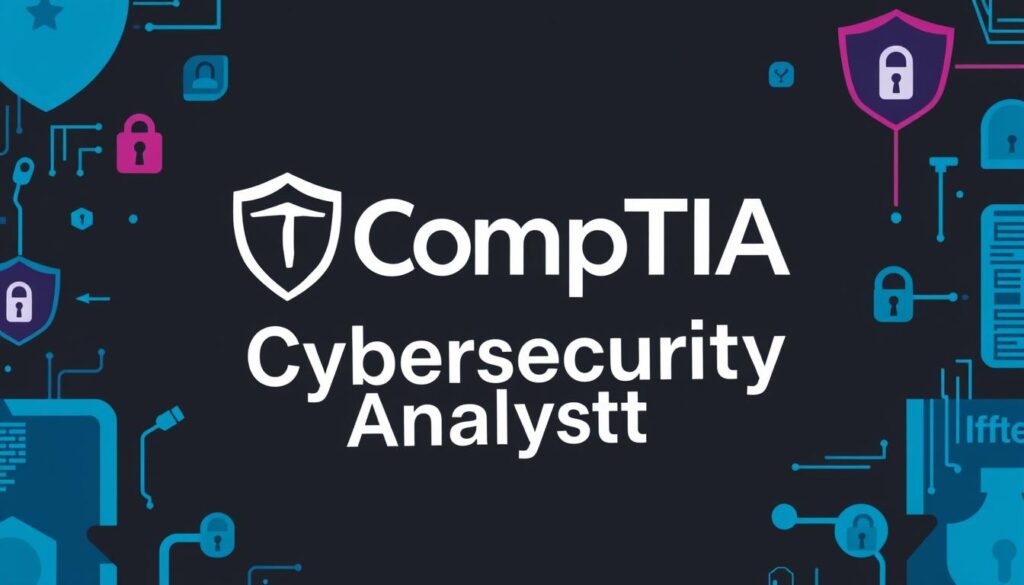
The CompTIA Cybersecurity Analyst (CySA+) certification focuses on the defensive aspects of cybersecurity, particularly security analytics and threat detection capabilities. Candidates are tested based on their ability to track and analyze data from network sources, making it a valuable certification for those working in security operations centers.
Certificate of Cloud Security Knowledge (CCSK)
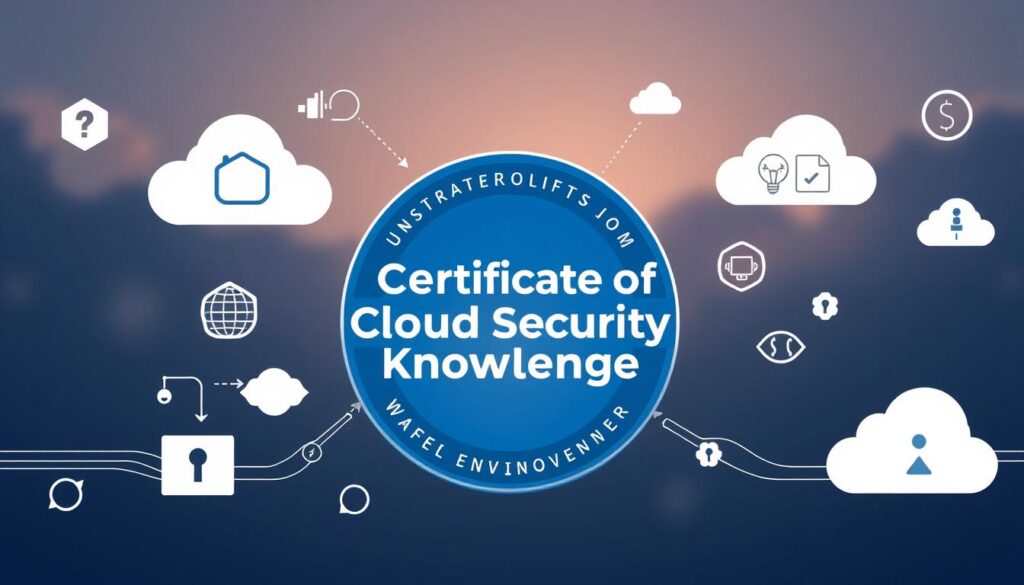
The Certificate of Cloud Security Knowledge (CCSK) from The Cloud Security Alliance is considered “the standard of expertise for cloud security.” It validates knowledge across 14 domains of cloud security, making it essential for professionals working in today’s cloud-centric environments.
These intermediate certifications are stepping stones between entry-level positions and more advanced security specializations. They require prior experience in IT or security roles and are designed to enhance your career prospects by demonstrating your expertise in specific cybersecurity domains.
Advanced Cybersecurity Certifications
Advanced certifications in cybersecurity are designed for experienced professionals looking to demonstrate their mastery of advanced security concepts and practices. These certifications typically require 5+ years of relevant experience and signify expertise across multiple security domains.
Key Highlights: You’ll explore advanced certifications that represent the highest levels of achievement in cybersecurity. We’ll provide an in-depth look at the CISSP certification, widely considered the gold standard for security professionals. You’ll also learn about the CISM certification’s focus on security management, the highly respected OSCP certification with its hands-on examination format, and the CompTIA CASP+ certification that validates advanced technical knowledge.
Certified Information Systems Security Professional (CISSP)
The CISSP is highly regarded and targets security analysts and other professionals looking to improve their technical skills. It covers complex subject areas including access control systems, physical security, and business continuity planning. The certification exam costs $749 and consists of a challenging 6-hour format with 250 questions.
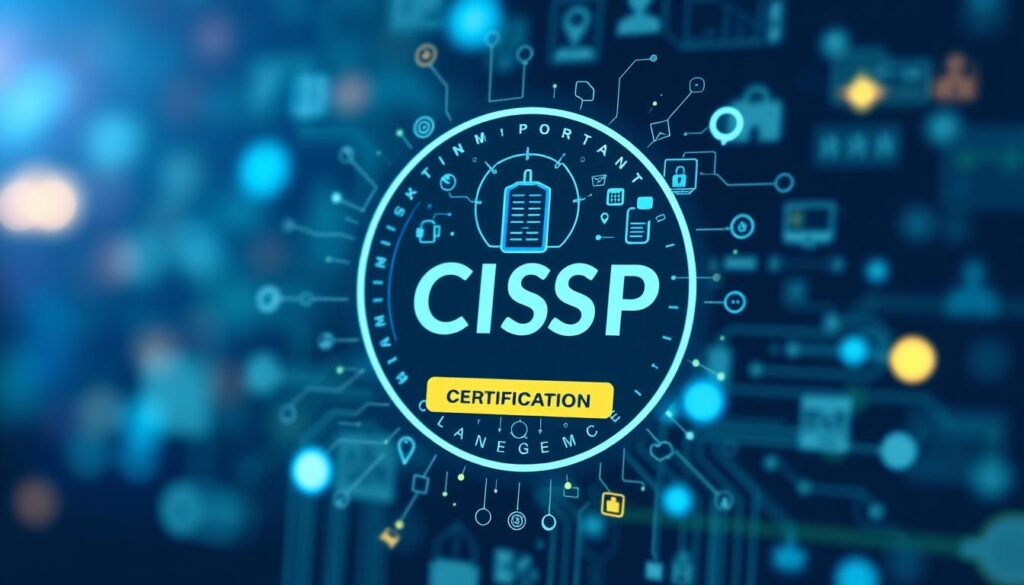
Certified Information Security Manager (CISM)
The CISM certificate is built for information security professionals looking to advance into managerial positions. It focuses on security management rather than technical implementation, making it ideal for those looking to move into leadership roles like Information Security Manager or CISO.
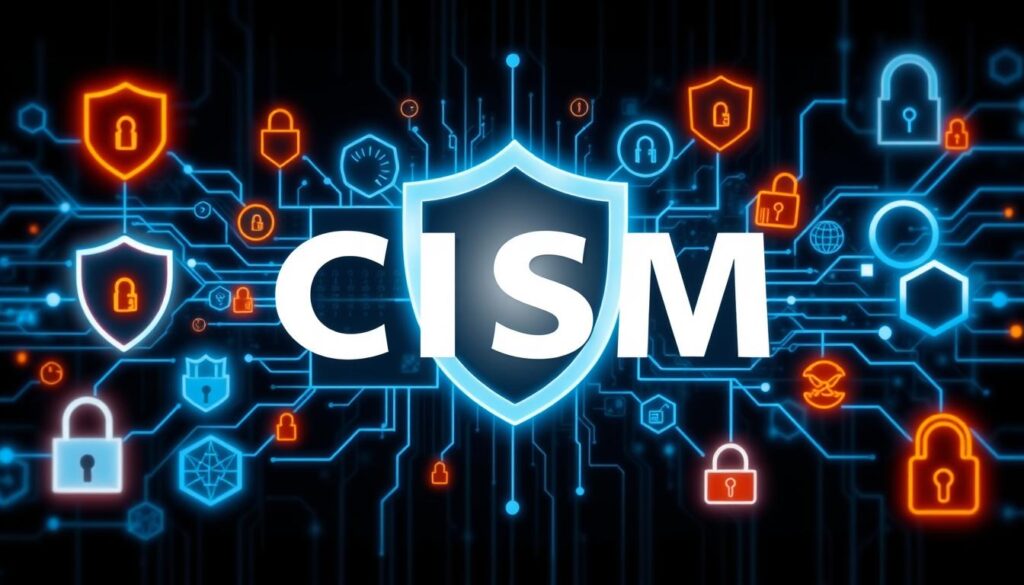
Offensive Security Certified Professional (OSCP)
The OSCP certification falls under the offensive operations in the security certification progressive chart. It features a distinctive hands-on examination format, requiring you to successfully penetrate multiple systems within a 24-hour period and submit a professional report.
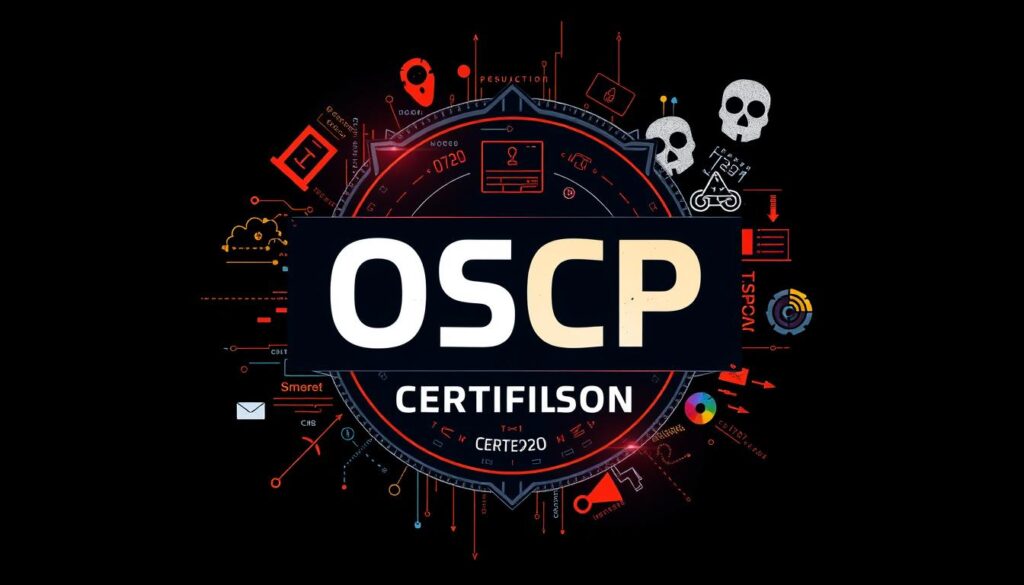
CompTIA Advanced Security Practitioner (CASP+)
The CompTIA CASP+ certification equips security practitioners to implement security engineering and architecture at the enterprise level. It validates advanced technical knowledge and skills required to conceptualize, design, and engineer secure solutions across complex enterprise environments.
Generate an image representing the CASP+ certification logo or related advanced security practitioner concepts.
These advanced certifications require a significant time and financial investment. However, they can lead to substantial returns on investment through access to senior-level positions and higher salaries.
Top Cybersecurity Certifications To Earn Today – Splunk
As organizations increasingly rely on Splunk for security monitoring and incident response, the value of Splunk certifications in the cybersecurity landscape continues to grow. With a range of certifications available, you can validate your skills and expertise in using Splunk to enhance your career prospects.
Splunk Core Certified User

The Splunk Core Certified User certification is designed for individuals who want to demonstrate their ability to use the Splunk platform effectively. This certification validates your skills in creating basic reports and dashboards, using lookups and fields, and performing searches.
By earning this certification, you can showcase your foundational knowledge of Splunk and your ability to work with the platform’s core features.
Splunk Core Certified Power User

The Splunk Core Certified Power User certification builds on the foundational skills validated by the Core Certified User certification. This certification demonstrates your ability to work with knowledge objects, data models, workflow actions, and advanced SPL commands.
As a Power User, you can leverage the full potential of the Splunk platform to drive insights and inform security decisions.
Splunk Enterprise Certified Admin

The Splunk Enterprise Certified Admin certification is designed for professionals who manage and maintain Splunk Enterprise environments. This certification validates your expertise in data ingestion, monitoring, configuration, search heads, and license management.
By earning this certification, you can demonstrate your ability to deploy, manage, and maintain complex Splunk environments.
Splunk Enterprise Security Certified Admin

The Splunk Enterprise Security Certified Admin certification is specialized for professionals who manage Splunk’s dedicated security information and event management (SIEM) solution. This certification validates your understanding of technology add-ons, customizations, event processing deployment requirements, and risk analysis settings.
As a certified admin, you can effectively manage and customize Splunk Enterprise Security to meet your organization’s security needs.
Splunk Certified Cybersecurity Defense Analyst

The Splunk Certified Cybersecurity Defense Analyst certification validates your ability to use Splunk for security monitoring, threat detection, and incident response. This certification demonstrates your skills in using tools for continual monitoring, detecting, analyzing, and combating cyber threats.
By earning this certification, you can showcase your expertise in using Splunk to drive cybersecurity operations and mitigate risks.
Cost and Requirements for Splunk Certifications
The cost for Splunk certification exams is $130 USD per attempt, making them relatively affordable compared to other cybersecurity certifications. The specific prerequisites and preparation resources vary by certification level, so it’s essential to review the requirements for your chosen certification.
By understanding the costs and requirements, you can plan your certification journey effectively and make informed decisions about your career development.
Career Opportunities with Cybersecurity Certifications
The job market is ripe with opportunities for certified cybersecurity professionals, and having the right certification can make all the difference. As the demand for skilled cybersecurity experts continues to grow, you can capitalize on this trend by earning a relevant certification.
According to research from the Bureau of Labor Statistics, computer and IT jobs are expected to grow much faster than average from 2023 to 2033, with a projected 356,700 job openings annually. This growth translates into a wide range of career opportunities for certified professionals.
Roles and Responsibilities
With a cybersecurity certification, you can pursue various roles, including technical positions like security analyst and penetration tester, as well as management roles like security director and CISO. For instance, Splunk-certified professionals can explore specialized roles such as Splunk Administrator, Splunk Developer, or Splunk Security Analyst, working with the Splunk platform to solve complex security challenges.
Typical responsibilities associated with these roles include monitoring and responding to security incidents, developing security policies, and managing security teams. By understanding the specific job roles that become accessible with different certification combinations, you can strategically plan your certification journey to align with your career goals.
- Splunk Administrator: managing and configuring Splunk deployments
- Splunk Developer: creating customized apps, dashboards, and solutions
- Data Analyst: deriving meaningful insights from sourced machine data
- Security Analyst: analyzing and responding to security threats
Salary Expectations and Job Growth
Certified cybersecurity professionals can expect competitive salaries and exceptional job growth. Current data shows that certification can significantly impact earning potential across various experience levels and specializations. As you transition between different types of organizations, from corporations to government agencies to security consulting firms, you’ll find unique opportunities and challenges.
The demand for skilled cybersecurity professionals far outpaces supply, creating favorable conditions for certified individuals. By earning a relevant certification, you can position yourself for success in this growing field and take advantage of the numerous career opportunities available.
How to Choose the Right Cybersecurity Certification
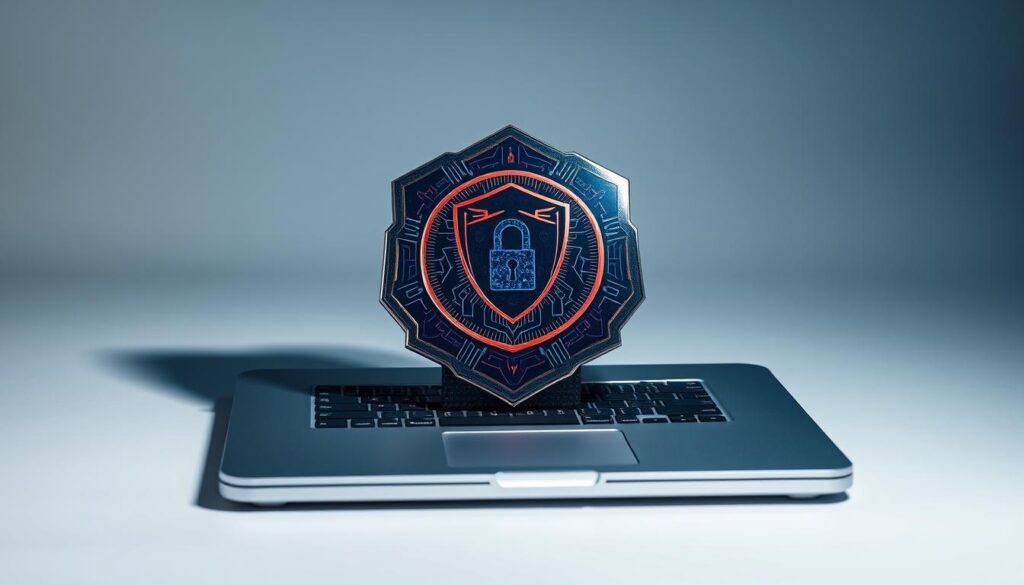
The key to selecting the right cybersecurity certification lies in assessing your current skills, experience, and long-term career objectives. To make an informed decision, you need to evaluate your strengths and weaknesses, understand the certification requirements, and align them with your career aspirations.
Assessing Your Current Skills and Experience
Begin by taking stock of your current technical skills and security knowledge. Consider your experience in the field and any relevant training you’ve received. For instance, if you’re just starting out, CompTIA Security+ is an excellent foundation. Mapping your existing experience to certification prerequisites will help you identify which certifications are within reach and which may require additional preparation.
Aligning Certifications with Career Goals
Your career goals should be the driving force behind your certification choices. Whether you’re aiming for a technical specialist role, a management position, or a consulting career, aligning your certifications with your long-term objectives is crucial. For example, if you’re interested in a senior-level position, certifications like CISSP can be highly beneficial, although they require significant effort to achieve.
Considering Time and Financial Investment
Practical considerations such as study time requirements, exam preparation resources, and certification costs must be factored into your decision. Creating a realistic timeline and budget for your certification journey is essential. You should also explore options like employer tuition assistance programs and negotiate for study time or certification bonuses if possible.
By carefully assessing your current skills, aligning certifications with your career goals, and considering the time and financial investment required, you can make an informed decision about which cybersecurity certification is right for you. This systematic approach will help you maximize the value of your certification and advance your career in the field.
Conclusion
In the rapidly changing world of cybersecurity, certifications serve as a foundation for building a successful and rewarding career. By obtaining the right certification, you can significantly enhance your career prospects and increase your earning potential.
The journey to becoming a cybersecurity expert involves progressing from entry-level certifications like CompTIA Security+ to advanced credentials such as CISSP. Each level builds upon the previous one, developing comprehensive security expertise. Additionally, Splunk certifications add special value to your credential portfolio, particularly in data-driven security operations and advanced analytics for threat detection.
When pursuing certifications, it’s essential to align your choices with both your current skills and future aspirations. This strategic approach ensures that you’re not just accumulating certifications but are instead creating a structured learning path for continuous professional development. Remember, the field of cybersecurity is constantly evolving, requiring ongoing learning and periodic recertification.
As you continue on your certification journey, whether you’re pursuing your first security certification or adding specialized credentials to your existing portfolio, you’ll be taking a significant step towards a successful career in cybersecurity. Combine your certifications with practical experience and a genuine passion for cybersecurity, and you’ll be well on your way to achieving your professional goals.
